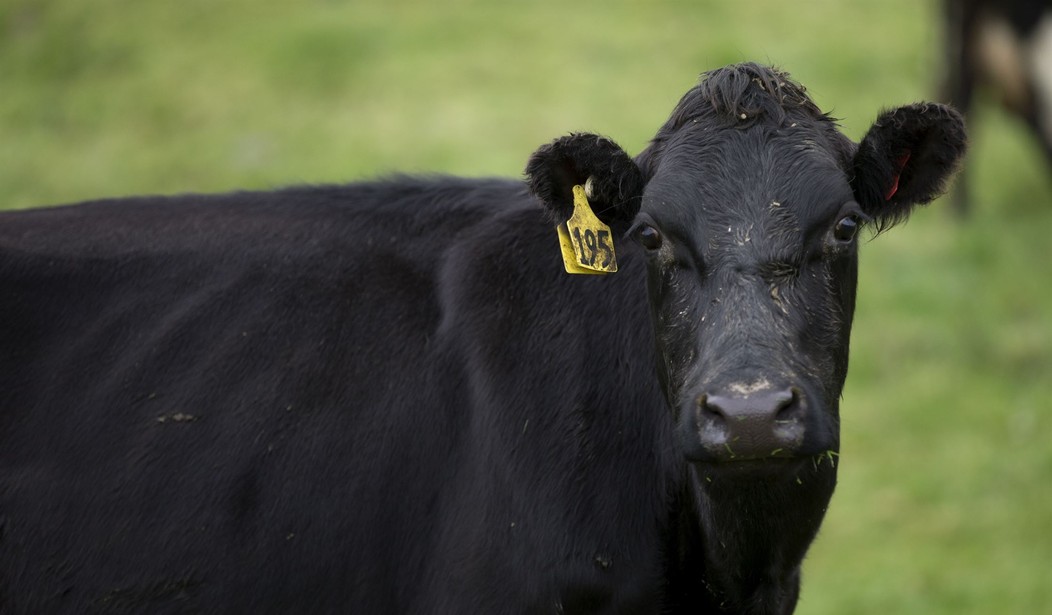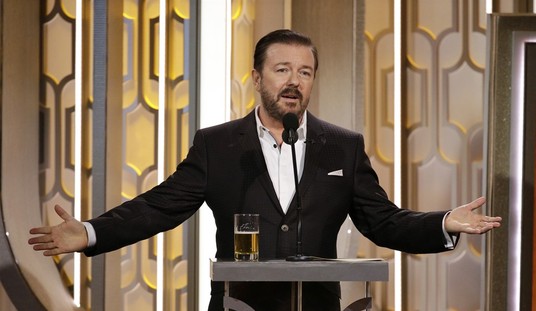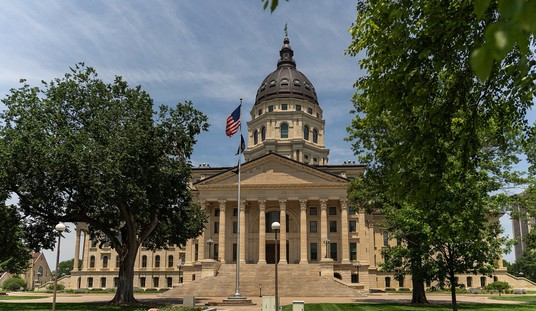We are all painfully familiar with the ongoing hooraw in the news about “climate change,” and a big part of the environmental extremists’ supposed formula for dealing with said change is encouraging – or forcing - people to eat a plant-based diet, claiming an ethical high ground in this action to save the planet. This activism can literally set family members against family members.
But veganism, in the form of “ethical veganism,” goes back much further than that.
Veganism dates back to 1944 when British Vegan Society co-founder Donald Watson coined the term to mean “non-dairy vegetarian.” The Society expanded the definition in 1951 to state that “…man should live without exploiting animals.” Vegans eschew animal products in food, clothing, household products, or any other reason. There's a problem: Their pose is a pretense, their attempts to live up to it, a sham.
There are a variety of reasons why people “go vegan.” Some simply don’t like the taste of meat. Some claim veganism is “green” and that a vegan lifestyle minimizes impact on the environment, as we noted above. That's fine. We all live as we choose to live, and there's an end of it. But not for animal rights loons and climate change radicals. The animal rights groups, of course, include people like Rutgers School of Law professor Gary Francione, who argued that “…all sentient beings should have at least one right—the right not to be treated as property.”
Do ethical vegans live up to this stated standard? Do their actions live up to their own stated ethical principle that animals have the right not to be treated as property? Do their actions really result in zero animal use? The parallel in human terms would be slavery, which no rational person thinks is ethically acceptable. Slaves are the property of masters; they live and die at their owner’s sufferance. And the answer is: No, they do not live up to their own stated standard.
Unfortunately for the ethical vegan, the production of their food alone reduces their claim not to impracticality but to impossibility. Animals are killed in untold millions during plant agriculture. Some are killed accidentally in the course of mechanized farming; some are killed deliberately during pest control. Animals are killed every day. Every potato, every stick of celery, every cup of rice, and every carrot has a blood trail leading from field to plate.
Back in the heady days of Usenet, when I was debating this topic a lot on talk.politics.animals, and alt.philosophy.vegetarian, I ran into a rice farmer who posted the following first-hand account on a Usenet forum:
[A] conservative annualized estimate of vertebrate deaths in organic rice farming is ~20 pounds…this works out a bit less than two vertebrate deaths per square foot, and, again, is conservative. For conventionally grown rice, the gross body count is *at least* several times that figure… when cutting the rice, there is a (visual) green waterfall of frogs and anoles moving in front of the combine. sometimes the 'waterfall' is just a gentle trickle (± 10,000 frogs per acre) crossing the header, total for both cuttings, other times it is a deluge (+50,000 acre).
My own family was involved in corn and soybean farming; our numbers were not that high, but they were not inconsiderable. Pheasants and rabbits are routinely killed in planting and harvesting, and rodents are killed by the thousands using traps and pesticides at every step: Production, storage, and transportation.
Rational people know this and don’t worry about it. It’s an inevitable consequence of modern, high-production agriculture. The ethical vegan, when confronted with these undeniable facts, collapses. Their reaction, in almost every case, is to do a rhetorical lateral arabesque into a new claim that their vegan diet somehow causes “less death and suffering” than a non-vegan diet, a ridiculous and unsupportable argument. A pound of wild venison (net cost in animal death: about 1/120th of one animal) almost certainly causes less “death and suffering” than a pound of rice (net cost in animal death: Including rodents, insects, reptiles and amphibians, number of deaths may range into the hundreds.)
But the numbers don’t really matter. Not if there is a real ethical principle involved. A principle is absolute; it applies in every circumstance. What is at the heart of this fall-back argument is this claim: That a vegan diet has a lower cost in animal death and suffering than any non-vegan diet.
Here’s the problem: If you’re going to claim X<Y, you must then provide values for X and Y.
If any ethical vegan has crunched the numbers to prove this, I have yet to see the results. However, the numbers have been crunched elsewhere, and it turns out that a non-vegan diet may well cause less environmental impact than a vegan diet — for one reason: Food for livestock can be grown on land that is too poor for growing crops for human consumption.
If there were an actual ethical principle involved, the ethical vegan would be required to do one of two things:
- To analyze each of his or her sources of vegetable food and eat only those that are found to cause the least number of animals to die.
- Move off the grid and grow all their own food, scrupulously using no insecticides, no rodent control measures, and no mechanized equipment.
Note that it is only the second path that has a chance of accomplishing zero animal deaths.
In reality, ethical vegans do none of these things. The ethical vegan has no idea – none – whether their diet causes more animals to die, the same number, or fewer, than a diet that includes meat. Even when they engage in a completely irrational search for micrograms of animal material in their diet (I know of one who refuses to eat black olives because squid ink is used in part to color them), their actions are purely symbolic; they have no idea what their real impact is. Instead, they obsess over micrograms of animal products in their food while ignoring the metric tons of animal life destroyed to bring that food to the table. And when asked why they don't go off-grid and actually achieve their stated principle, the answer is always some variation of "...it's too hard."
Convenience, then, is why they refuse to live up to their own stated ethical code.
An ethical principle is usually a simple thing. If the willful murder of another human is wrong, then it is wrong in every circumstance. Ethical vegans claim that taking the life of non-human animals is wrong, but their actions do not live up to the claim; indeed, they don’t even try. The ethical vegan follows no ethical principle. Instead, they follow a simple, easy, results-neutral, and ethically indifferent rule: Do not put animal parts in your mouth. It allows them a pretense of moral and ethical superiority with no real effort; it is a cheap and easy pose, nothing more.
In other words - a virtue-signal.
In fact, ethical vegans exhibit stunning and savage hypocrisy. Ethical vegans, as a class, fail utterly to put any of their professed ethics into action. They claim to not cause harm to animals, but they do; when confronted, they claim to cause less harm to animals than the non-vegan, but they are utterly unable to show that to be true and are willing to make no real effort to quantify their impact. They are intimately involved, every day, in an activity that causes the deaths of millions of animals, and they do nothing about it. By their own claimed standards, they are in the same moral position as a slave-owner claiming that slavery is immoral.
Nobody should care what anyone else eats. I know several people who follow a vegan diet for a variety of reasons: underlying medical conditions or that they simply prefer it. They eat what they like, they don’t care if you eat a steak in front of them, and everyone gets along.
But the claims of “ethical vegans” are spurious and should be revealed as such at every turn.














